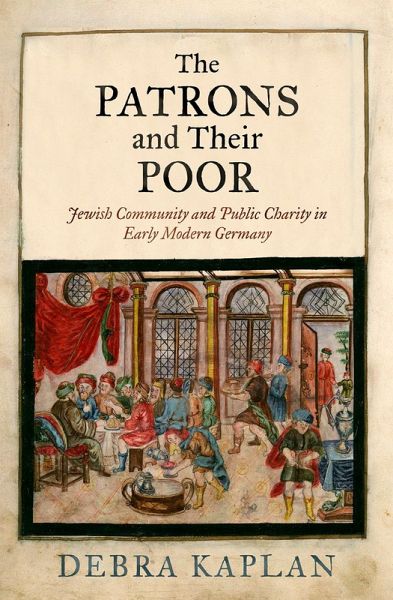
The Patrons and Their Poor (eBook, ePUB)
Jewish Community and Public Charity in Early Modern Germany
Versandkostenfrei!
Sofort per Download lieferbar
54,95 €
inkl. MwSt.
Weitere Ausgaben:

PAYBACK Punkte
27 °P sammeln!
A pregnant mother, a teacher who had fallen ill, a thirty-year-old homeless thief, refugees from war-torn communities, orphans, widows, the mentally disabled and domestic servants. What this diverse group of individuals-mentioned in a wide range of manuscript and print sources in German, Hebrew, and Yiddish-had in common was their appeal to early modern Jewish communities for aid. Poor relief administrators, confronted with multiple requests and a finite communal budget, were forced to decide who would receive support and how much, and who would not. Then as now, observes Debra Kaplan, public ...
A pregnant mother, a teacher who had fallen ill, a thirty-year-old homeless thief, refugees from war-torn communities, orphans, widows, the mentally disabled and domestic servants. What this diverse group of individuals-mentioned in a wide range of manuscript and print sources in German, Hebrew, and Yiddish-had in common was their appeal to early modern Jewish communities for aid. Poor relief administrators, confronted with multiple requests and a finite communal budget, were forced to decide who would receive support and how much, and who would not. Then as now, observes Debra Kaplan, public charity tells us about both donors and recipients, revealing the values, perceptions, roles in society, and the dynamics of power that existed between those who gave and those who received. In The Patrons and Their Poor, Kaplan offers the first extensive analysis of Jewish poor relief in early modern German cities and towns, focusing on three major urban Ashkenazic Jewish communities from the Western part of the Holy Roman Empire: Altona-Hamburg-Wandsbek, Frankfurt am Main, and Worms. She demonstrates how Jewish charitable institutions became increasingly formalized as Jewish authorities faced a growing number of people seeking aid amid limited resources. Kaplan explores the intersections between various sectors of the population, from wealthy patrons to the homeless and stateless poor, providing an intimate portrait of the early modern Ashkenazic community.
Dieser Download kann aus rechtlichen Gründen nur mit Rechnungsadresse in A, D ausgeliefert werden.













